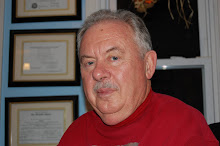Ralph D. Winter dies at 84; Christian missionary was one of America's most influential evangelicals
By Claire NolandMay 24, 2009
Ralph D. Winter, a Christian missionary who was named one of America's 25 most influential evangelicals by Time magazine in 2005, died Wednesday at his home in Pasadena after battling multiple myeloma and lymphoma. He was 84.
Winter stepped onto the world stage in 1974 at the International Congress on World Evangelization in Lausanne, Switzerland. There he issued a call for other Protestant evangelists to proselytize to the world's "unreached people," those who had not been exposed to Christianity.
In identifying mission fields, Winter looked for "ethnic pockets," isolated areas where language, ethnicity, culture and social status as well as religion had hindered the spread of the Christian Gospel.
He began his career as a Presbyterian missionary in Guatemala in 1956. Ten years later he returned to the United States to become professor of missions at Fuller Theological Seminary in Pasadena. At Fuller he trained missionaries, sharing with students his experiences working with the indigenous Maya people of Latin America.
In 1976 he decided to leave the classroom to become a strategist for Christian outreach, founding the interdenominational U.S. Center for World Mission on the former campus of Pasadena Nazarene College. A year after establishing a research institute there, he founded the related William Carey International University.
By 2005 he was included along with such figures as Rick Warren and James Dobson in Time's compilation of influential American evangelicals.
Winter was born in South Pasadena in December 1924, the middle son of Hugo H. Winter, a prominent freeway designer with the Los Angeles Bureau of Engineering, and his wife, Hazel.
He earned a bachelor's degree in civil engineering at Caltech before serving in the Navy during World War II.
After his discharge, Winter switched gears and studied for a doctorate in linguistics, anthropology and mathematical statistics at Cornell. He then attended Columbia, where he received a master's degree in teaching English as a second language, and Princeton Theological Seminary, where he was ordained a Presbyterian minister in 1956.
By then he was prepared for his missionary calling to Guatemala, setting out with his wife, Roberta, a registered nurse whom he had married in 1951. They had four daughters, all of whom became involved in missionary work. Roberta died in 2001.
Winter is survived by his second wife, Barbara; daughters Elizabeth Gill, Rebecca Lewis, Linda Dorr and Patricia Johnson; 14 grandchildren; one great-grandchild; and two brothers, Paul, a structural engineer, and David, president of Westmont College in Santa Barbara.
